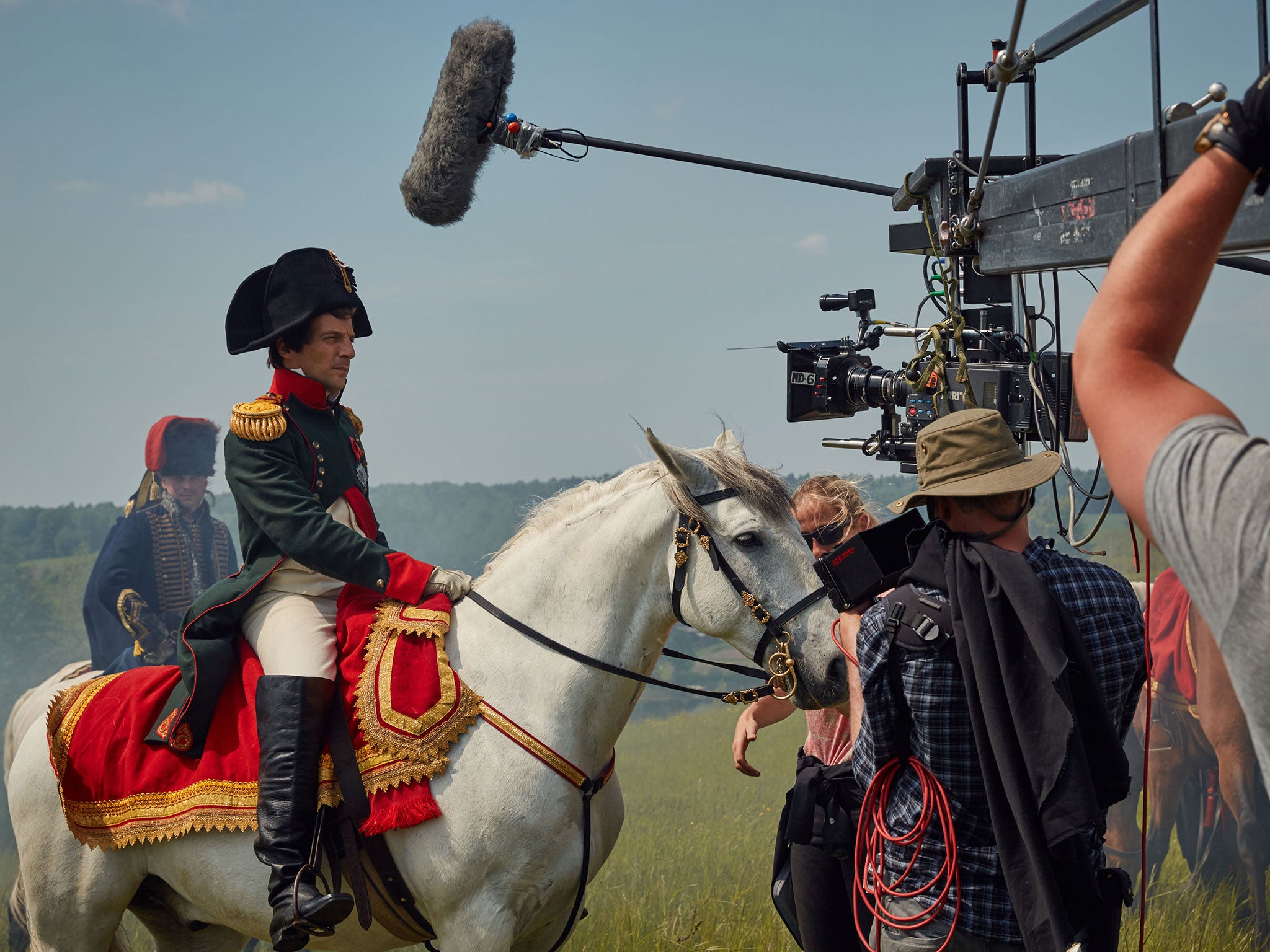War and Peace: Popularity of Leo Tolstoy adaptation prompts spate of costume dramas
Popularity of Tolstoy adaptation leads to calls for more foreign classics on television

Your support helps us to tell the story
From reproductive rights to climate change to Big Tech, The Independent is on the ground when the story is developing. Whether it's investigating the financials of Elon Musk's pro-Trump PAC or producing our latest documentary, 'The A Word', which shines a light on the American women fighting for reproductive rights, we know how important it is to parse out the facts from the messaging.
At such a critical moment in US history, we need reporters on the ground. Your donation allows us to keep sending journalists to speak to both sides of the story.
The Independent is trusted by Americans across the entire political spectrum. And unlike many other quality news outlets, we choose not to lock Americans out of our reporting and analysis with paywalls. We believe quality journalism should be available to everyone, paid for by those who can afford it.
Your support makes all the difference.As viewers in their millions tuned in to find out what happens to Count Bezukhov and Natasha Rostova in the final episode of War and Peace, a relative of its author Leo Tolstoy joined in the chorus calling for more of the great novelist’s work to be adapted for the small screen.
Oleg Tolstoy, a photographer who lives in London and has released The Tolstoys in the 21st Century, a book of portraits of the modern-day Tolstoy dynasty, said when he started watching “it was really exciting” and hoped audiences would understand more about the author and his work. He hoped the door would open to more adaptations.
“The great thing about this adaptation is it’s now more accessible to the wider audience and might encourage people to read the novel that might never have thought of doing so before.”
He did say the strong British accents began to grate adding: “I could understand why someone would draw similarities to Downton Abbey.”
His call came as the series’ producer said she hoped more television adaptations of classic literature in translation would follow, and not just the usual suspects.
Last night marked the sixth and final episode of the BBC’s epic adaptation of Tolstoy’s 1869 literary masterpiece which follows five families through the trials and tribulations of the Napoleonic wars with Russia.
The producer Julia Stannard, who worked on the adaptation for three years, said the team was adamant it was not going to dumb down the book and called for more weighty foreign literature to be adapted.
“We do all get, possibly tired of the same pieces of literature being adapted again and again,” adding there was a “whole world to explore”, she told The Sunday Telegraph.
Ms Stannard called for adaptations of other Russian writers as well as Italian and French, and is herself keen to adapt existentialist authors such as Jean-Paul Sartre and Albert Camus.
The process of turning the 1,300-page novel into a popular Sunday-night drama made the producers realise they should “never underestimate your audience”, she said. “Don’t be afraid of things that feel inaccessible and impenetrable.”
A total of 5.1 million viewers tuned in last week for the penultimate episode but with many storylines left unresolved the BBC took the unusual step of granting a late extension from an hour to 80 minutes.
Charlotte Moore, controller of BBC TV channels and iPlayer, said the last episode delivered “beyond expectation” and added the emotion “will leave the audience pining for more”.
There is more period drama heading to the small screen. Next month ITV is to broadcast an adaptation of Anthony Trollope’s novel Doctor Thorne, while later this year on BBC1 is a three-part adaptation of Joseph Conrad’s classic novel The Secret Agent, set in 1886 in London.
The writer Tony Marchant said: “Conrad’s depiction of 19th-century terrorists committed to the destruction of the West, with a suicide bomber in their midst, was not only prophetic but is undeniably contemporary and compelling.”
Another recent costume drama success on the BBC was Poldark, which returns for a second series in 2016 starring Aidan Turner and Eleanor Tomlinson, after the first series peaked with 9.4 million viewers.
A literary adaptation that starts production in the summer is a four-part television version of Howards End, the E M Forster novel that was first published in 1910. It explores the changing landscape of social and class divisions through the stories of three families.
What’s next? Big ideas for the small screen
The Brothers Karamazov by Fyodor Dostoyevsky
The murder of landowner Fyodor Karamazov changes his four sons’ lives forever Written in 1880, it has been adapted before, though there have been no major productions in the UK.
The Leopard by Giuseppe Tomasi di Lampedusa
Published posthumously in 1958, it is about the decline of an aristocratic family in Sicily, beginning with the landing of Garibaldi. Adapted for Radio 3 in 2008.
Madame Bovary by Gustave Flaubert
Flaubert’s first novel, about a doctor’s wife who has adulterous affairs to escape the humdrum life in a provincial Normandy town. A mini-series in the UK in 2000.
The Red and the Black by Stendhal
Chronicle of the rise of Julien Sorel from carpenter’s son to the heart of Parisian society. It is a satirical take on corruption-riddled French society after Waterloo.
Join our commenting forum
Join thought-provoking conversations, follow other Independent readers and see their replies
Comments